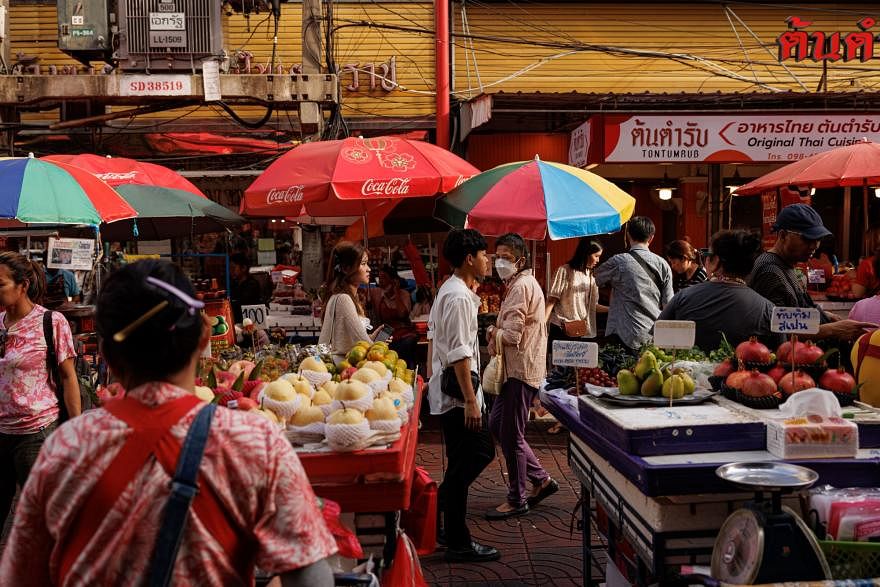GROWING political pressure aside, Thailand’s weak economy adds to the case for the central bank to cut interest rates sooner rather than later, according to money managers.
Prime Minister Srettha Thavisin has escalated calls for the Bank of Thailand (BOT) to trim rates in an off-cycle decision following a surprise weakness in fourth-quarter growth. While the push goes against Economics 101 that monetary policy making should be independent, the country’s deflationary streak had already given rise to bets that a rate cut is on its way.
Market watchers see a rising possibility of an easing at the next scheduled meeting in April, with the central bank chief resisting calls for an emergency move in an interview with Nikkei on Wednesday (Feb 21). Baht swaps are now pricing in around 35 basis points of reductions over the next six months compared with just 20 basis points at the end of last year.
“The recent economic data has been fairly poor” and monetary easing would’ve been one of the tools considered by the central bank, said Leonard Kwan, a portfolio manager at T Rowe – the second-largest holder of the country’s 50-year bonds, according to data compiled by Bloomberg. “We are happy to keep our current positioning” as the soft set of data will allow the bonds to be more resilient versus global peers, he added.
Economists surveyed by Bloomberg expect South-east Asia’s second-largest economy to expand by 3.3 per cent this year, a better performance than in recent years but trailing the 4 per cent plus growth rates seen before the pandemic.
“Already we are seeing Thai GDP weakening to 1.9 per cent in 2023 against a backdrop of deflation,” said Kheng Siang Ng, head of Asia-Pacific fixed income at State Street Global Advisors. “It is no surprise the market is expecting rate cuts soon.”
The BOT held rates at its latest Feb 7 decision, ignoring Srettha’s call the prior day for a 25-basis-point cut.
Monetary independence
While investors see a strong case for lower rates, the clash between Srettha and BOT governor Sethaput Suthiwartnarueput is putting them on edge.
Srettha’s move is the most overt push by a Thai leader to influence monetary policy since 2013 when members of Yingluck Shinawatra’s administration pressured the governor to lower borrowing costs.
In 2001, then Prime Minister Thaksin Shinawatra, Srettha’s friend and political ally, fired the central bank governor after the official who steered the economy through the Asian financial crisis resisted raising interest rates.
The firing of a central bank chief has been made difficult after a 2008 amendment to the central bank law, which conferred BOT more independence.
BOT’s assistant governor Piti Disyatat said last week that the central bank is willing to lower borrowing costs if it is convinced that the weakness in the economy is persistent and not transitory. The country’s high level of household debt has been seen as one reason behind the central bank’s reluctance to reduce rates.
Learning lessons
“You still want to see the central bank being able to practice policy in a fairly independent manner,” which is the best practice in any market, said T Rowe’s Kwan.
Some say Thai officials should draw lessons from other countries where political interference undermined global investors’ confidence.
Turkey President Recep Tayyip Erdogan frequently called for rate cuts in 2021 and intervened in monetary policy, triggering an outflow in foreign capital from the country’s equities and government bonds. The Turkish lira was the worst-performing emerging-market currency against the US dollar that year.
“The BOT needs to learn the lessons from Turkey,” said Kobsidthi Silpachai, head of capital market research at Kasikornbank in Bangkok. “When the government starts running monetary policy directly, there will be a sharp rise in risk premiums, such as in the currency, equities and bonds.” BLOOMBERG




